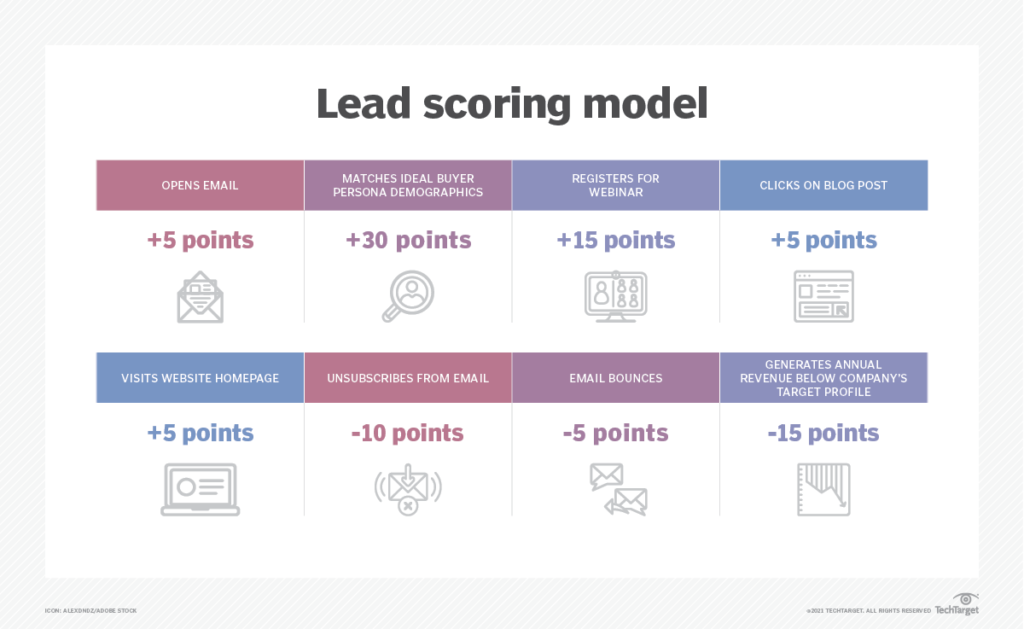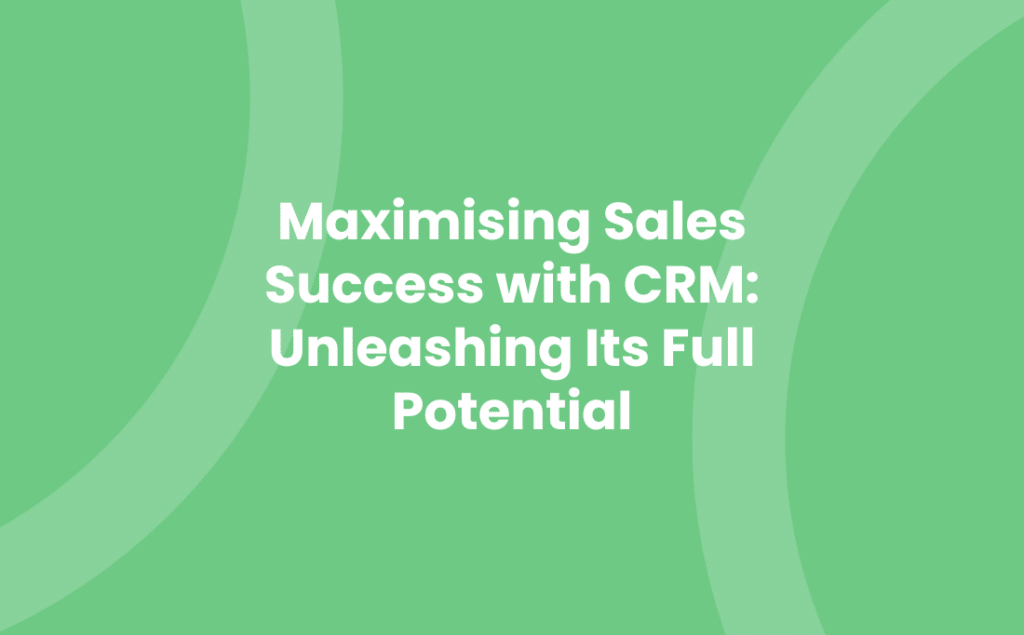Effective customer relationship management is paramount to driving sales success. The importance of a Customer Relationship Management (CRM) solution, a powerful tool that can revolutionise your sales process, streamline operations, and propel revenue growth is paramount. In this blog, we will delve into the remarkable benefits of CRM, exploring its ability to optimise sales strategies, enhance team collaboration, and generate valuable insights. Read on to see the many ways in which CRM can transform your sales process and generate sales success.
Centralised Data and Web Forms
A CRM solution acts as a centralised hub for managing data, a place to keep all the relevant information for leads and prospects, as well as customers, empowering your sales teams with comprehensive insights, prompts, and reminders. It also enables the integration of web forms, allowing enquiry information to be submitted directly into the CRM database. This seamless data capture ensures that no potential enquiry goes unnoticed, minimises human error in data accuracy, while also facilitating personalised follow-ups and efficient lead management. All this, plus emails integrated into the system for a full 360-degree view.
Streamlined Appointment Scheduling
Linking your calendar to the CRM solution enables leads and prospects to book demos or meetings directly. By eliminating back-and-forth communication, this feature streamlines the appointment scheduling process, saving time for both your team and potential customers. The ease and convenience of booking demos creates stronger engagement and enhances the chances of converting leads into prospects and prospects into customers.
Efficient Lead Qualification
A CRM solution helps you distinguish between leads and enquiries, enabling your sales team to focus their efforts on the most promising opportunities. Using predefined criteria and lead scoring techniques, CRM software automates lead qualification, ensuring that valuable time and resources are allocated to deals that have a higher likelihood of closing. This targeted approach enhances productivity and increases conversion rates.
For those of you not sure what is meant by lead scoring, it is a technique that lets you attribute point values to prospective buyers (see an example in the image below). Once they accumulate a set number of points, they become qualified leads. It means they are likely to make a purchase and salespeople can contact them. Those who rank the highest on the scale should be contacted first.

Valuable Insights: Lead Sources and Sales Trends
CRM solutions offer valuable analytics that enable you to identify the most successful lead sources. By tracking and analysing data, you can work out the best channels to bring in the most qualified prospects. Then, you know how to best allocate resources. Additionally, CRM’s reporting capabilities provide insights into sales trends, helping you adapt strategies, identify growth areas, and make sure you are concentrating your efforts within the best areas. This may be via business size, business sector, location, turnover, or many other factors.
Accelerated Onboarding of New Team Members
A CRM solution also serves as a repository of best practices, templates, and standardised sales processes as well as being the heart of the sales team for information and customer, or prospect, history. This means that new team members can quickly get involved by accessing pre-defined workflows, templates, and historical customer interactions. By minimising the learning curve, CRM improves the onboarding process, empowering new hires to deliver results sooner with a structured way to work.
You might find our blog on Boosting Sales Success – The Power of Sales Coaching using a Playbook useful.
Improved Pre/Post-Sales Engagement and Collaboration
CRM solutions facilitate effective pre-sales engagement by providing a unified platform for collaboration among team members, including sales representatives, marketers, and customer support. With easy access to customer data, interactions, and communication history, teams can work together easily, leveraging insights to tailor pitches, anticipate customer needs, and deliver the best customer experience and support.
Reminder Tasks and Opportunity Management
A CRM solution offers built-in reminder tasks that help your sales team stay in regular contact with leads, prospects and customers. By automating reminders for follow-ups, nurturing campaigns, and important milestones, CRM helps to ensure that no opportunity falls through the cracks. Moreover, CRM encourages efficient opportunity management, allowing you to track the progress of deals through different sales stages and how to take proactive steps to move them forward.
Standardised Sales Processes and Coaching Opportunities
A CRM solution provides the perfect framework for standardising sales processes across team members. This consistency and structure ensure crucial steps aren’t missed, leading to increased efficiency and effectiveness. As well as this, CRM analytics can help sales managers identify coaching opportunities by highlighting deals that may need additional support, where over or underselling may be occurring. These targeted coaching interventions help to drive performance improvements.
Contract and Renewal Management
Managing contract and maintenance renewals can be hugely improved with CRM, by providing visibility into upcoming expiry and renewal dates. Automated notifications and alerts help your team keep proactive, making sure that renewal opportunities are capitalised upon and that customer relationships are nurtured effectively.
Business Intelligence and Automation
A CRM solution is a valuable business intelligence tool, enabling you to identify trends, patterns, and areas for improvement. By analysing data on sales activities, customer interactions, and outcomes, you can look at areas that drive business growth. Moreover, the automation features allow for timely follow-ups, notifications of deadlines (e.g. quote or renewal expiries), and other key interactions, ensuring that no critical stage is overlooked.
Enhanced Visibility and Accountability
CRM provides visibility into both individual and team performance, allowing you to monitor key metrics such as the number of calls made, emails sent, and deals closed. This transparency fosters a culture of accountability, where each team member’s contributions are measurable and aligned with overall business goals. It is also useful if team members are sick or absent for any time, to be able to have their workload easily covered.
Further Information
Incorporating a CRM solution into your sales process offers so many benefits that extend far beyond simple customer relationship management. From streamlined lead management and efficient appointment scheduling to standardised processes, data-driven insights, and enhanced collaboration, CRM gives your sales teams the tools to excel. By leveraging automation, analytics, and a holistic view of customer interactions, CRM software helps you optimise strategies, close deals more effectively, and therefore boost sales success and revenue.
As technology continues to evolve, embracing CRM is not just an option; it’s a strategic imperative for any businesses aiming to succeed in today’s competitive marketplace.
If you have any questions about maximising sales success with CRM, get in touch.


